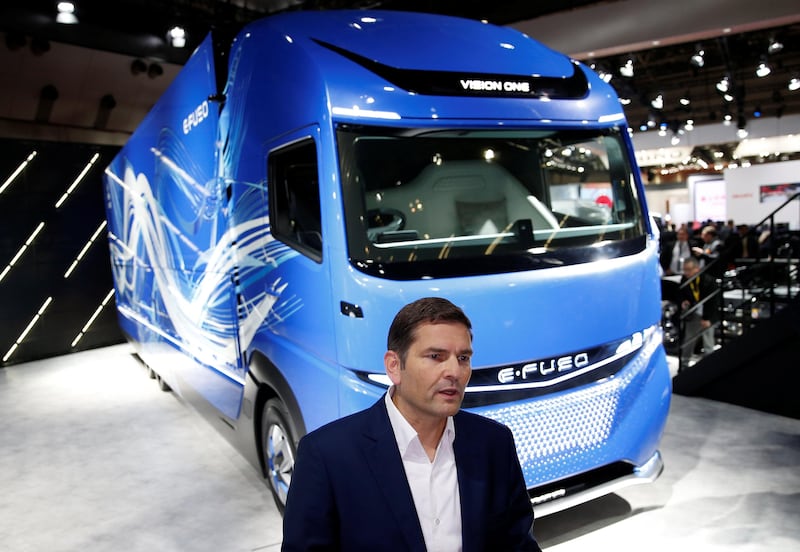Daimler is stepping up plans to roll out electric-powered lorries as the world’s largest make of commercial vehicles seeks to fend off newcomers like Tesla Inc. and Deutsche Post.
The German car maker has started initial production runs of the Fuso eCanter urban delivery lorry and expects such models to vie with traditional diesel versions in the near future as battery costs plunge. Daimler is seeking to stay competitive as cities step up measures to improve air quality.
“In two years, it will be possible to produce an electric vehicle at the price of a diesel vehicle,” said Jorge Rosa, the head of Daimler’s Tramagal plant in Portugal, which produces the eCanter. “The main driver is the cost of batteries, which is dropping sharply.”
The maker of Mercedes, Freightliner lorries and Fusos, headed by Marc Llistosella, last week unveiled a prototype of a battery-powered heavy-duty lorry as Daimler expands its lineup with electric offerings. Tesla is planning to show off a concept truck on November 16, while Deutsche Posthas teamed up with Ford to boost production of its no-frills StreetScooter delivery vans. The German postal service developed the vehicle after it could not find a suitable model for emission-free deliveries from Daimler and other from traditional manufacturers.
____________
Read more:
Mercedes takes on Tesla with $1bn US production plans for electric vehicles
Volvo shares hit record as earnings top forecasts on surging truck demand
Trucking on the road to a technological revolution
____________
To fight back, Daimler introduced the light-duty eCanter haulers in Manhattan last month, supplying a fleet to several New York City non-profits as well as signing United Parcel Service as its first commercial customer in the US. The lorry, with a range of 100 to 130km between charges, is coming to market as customers demand products better-suited to rising delivery demand in cities.
After assembly trials, Daimler will start mass production of the eCanter at the Tramagal plant at the end of 2018 or start of 2019, Mr Rosa said. While initial volumes will be modest, electric variants could account for 30 per cent to 40 per cent of the Fuso plant’s output in three or four years. The Tramagal factory will produce close to 10,000 units this year, up from 6,682 in 2016. About 90 per cent of the plant’s output is exported.
“The speed at which electric mobility will introduce itself will be quite a lot faster than what was foreseen two or three years ago,” Mr Rosa said. “There are many cities that have already announced dates from which they will stop carbon fuel vehicles” from entering downtown areas.






